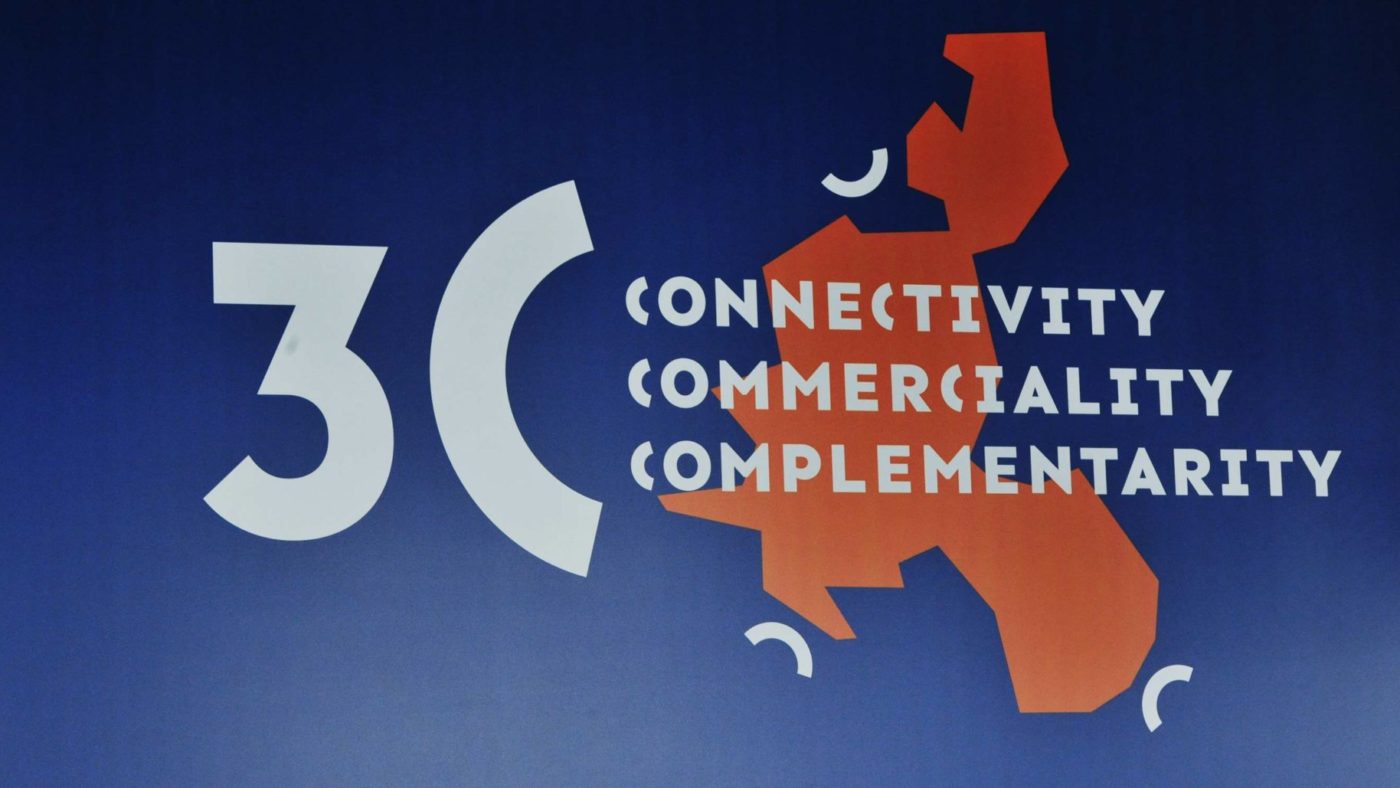Three Seas Initiative (3SI) has so far been a little-known concept to the British public. But with the increased geopolitical importance and economic development of central and eastern Europe, the project is worth analysing and discussing. Some say that the aim of the initiative is to create competition to German leadership in Europe, others that the alliance simply wants to become a stronger partner to Western Europe and the world. As Britain embarks on a new chapter of Global Britain, the 3SI could be a pivotal diplomatic project for London to engage in.
3SI was launched by Poland and Croatia in 2016 as a platform for heads of states, officials and experts from across central and eastern Europe to devise strategies for strengthening infrastructure, energy, and interconnectivity projects across the north-south axis. The International Monetary Fund said those developments would boost living standards in the 12 states taking part.
To facilitate the economic component of the project, the group has established a commercially managed 3SI Investment Fund to attract international private sector capital. Two months ago, its nine 3SI members announced their contribution to the fund, with Poland increasing its contribution by €250 million. Interestingly, the fund’s biggest non-member investor, the United States, pledged to invest $1 billion, alongside private investors, raising a total of €3.4 billion.
There are currently 157 energy, transport and communications-based projects listed under the 3SI framework, with 76 of them listed as ‘priority’. Some of the notable projects include ‘Via Carpatia, a highway running from Klaipedia in Lithuania to Thessaloniki in Greece, the ‘Rail Baltica’ railway line from Warsaw via Riga to Tallinn with a ferry crossing to Helsinki, and the Danube-Oder-Elbe inland waterway connection.
An undiscovered space for post-Brexit diplomatic success?
In 2020, this partnership has become more than a mere ‘platform’ for discussion, evolving into a key economic and geopolitical body in this region of Europe. Since its conception, the 3SI has hosted summits in Dubrovnik (2016), Warsaw (2017), Bucharest (2018), Ljubljana (2019), and – albeit the novel coronavirus pandemic – a virtual summit in Tallinn this year.
The United States, Britain’s key ally, has recognised the rapid development of the 3SI and is capitalising on its conspicuous potential. President Trump’s declarative political support at the Warsaw summit quickly translated to key financial support – $1 billion to the 3SI Investment Fund had been approved by Congress in February of last year; the first instalment of $300 million, which should be finalised in December, was announced at the latest Tallinn summit by the US delegation. His successor, Joe Biden, is likely to continue the course of supporting the region via the 3SI.
Washington’s commitment should come as no surprise – the 3SI perfectly accommodates US economic and geopolitical interests. The project’s emphasis on strengthening cross-border energy links will help expand American exports of light natural gas, with a pipeline connecting Poland to Croatia with seas terminals in each country.
These economic benefits have geopolitical implications too. First, American energy supply curbs Russian dominance in this area, simultaneously providing central and eastern European with strategic deterrence and energy security. Second, Washington uses the 3SI partnership as an instrument against growing Chinese entrenchment in the Balkans. That is most apparent in telecommunications, with the ‘5G Clean Network Security Plan’ – Estonia recently joined the program and initiated its Smart Connectivity project which aims to support digitalisation of 3SI’s borders. Most central and eastern European capitals, similarly to London, are increasingly wary of Beijing and its expanding influence.
How can Britain engage?
It’s crucial to realise that Europe is not synonymous with the European Union, and building links with the 3SI may be a key instrument for Global Britain to demonstrate this. There’s nothing stopping the UK contributing directly to the 3SI and coordinating its approach with British companies and private investors. Britain could also act more indirectly by joining the United States in imposing sanctions on the Nord Stream 2 pipeline, which would display our commitment to curtailing Russia’s energy monopoly in Europe and show solidarity with Nato allies in central and eastern Europe.
Close engagement with the 3SI is a great way for Global Britain to develop new allies. It has the potential to become a new political engine, giving a voice to Central and Eastern Europe and laying the foundations for new forms of transatlantic cooperation. As we face a the future outside the EU, the initiative should be central to our new engagement with the old continent.
Click here to subscribe to our daily briefing – the best pieces from CapX and across the web.
CapX depends on the generosity of its readers. If you value what we do, please consider making a donation.


